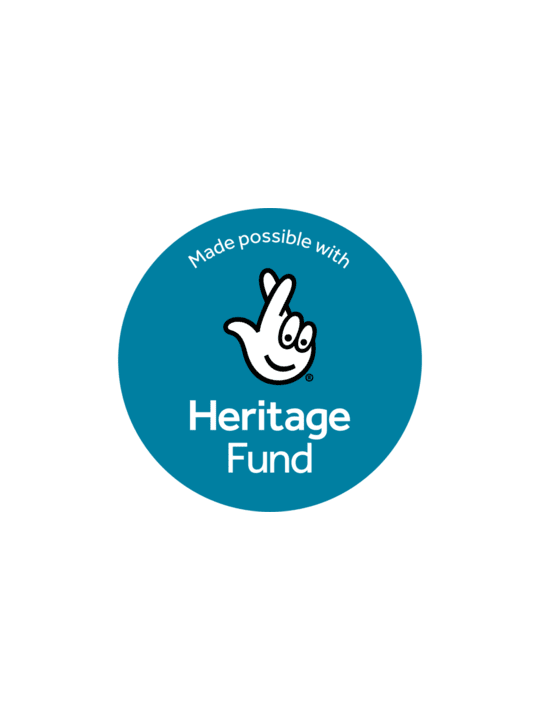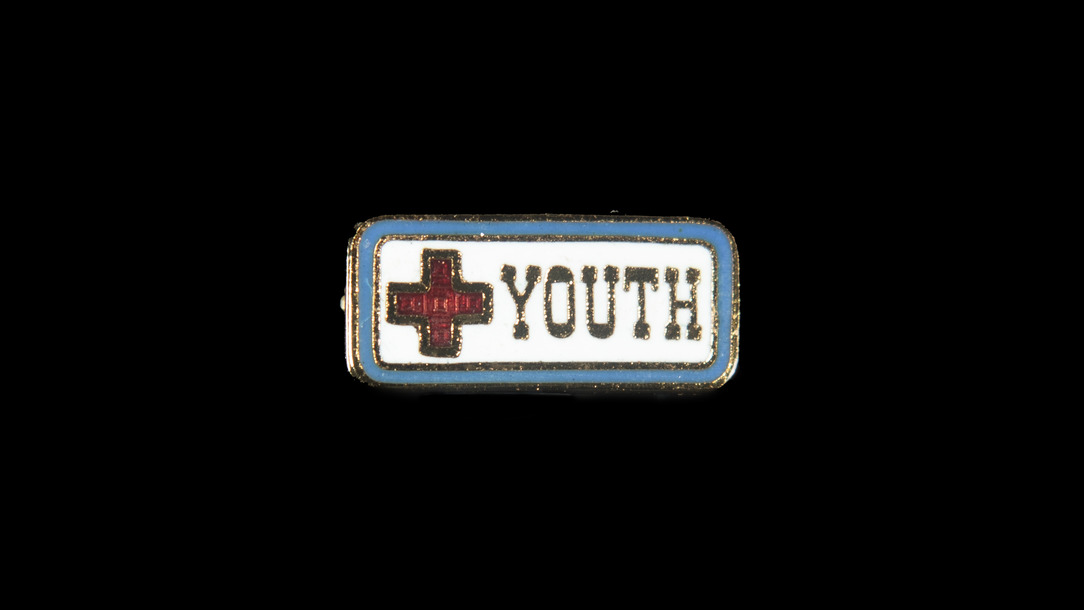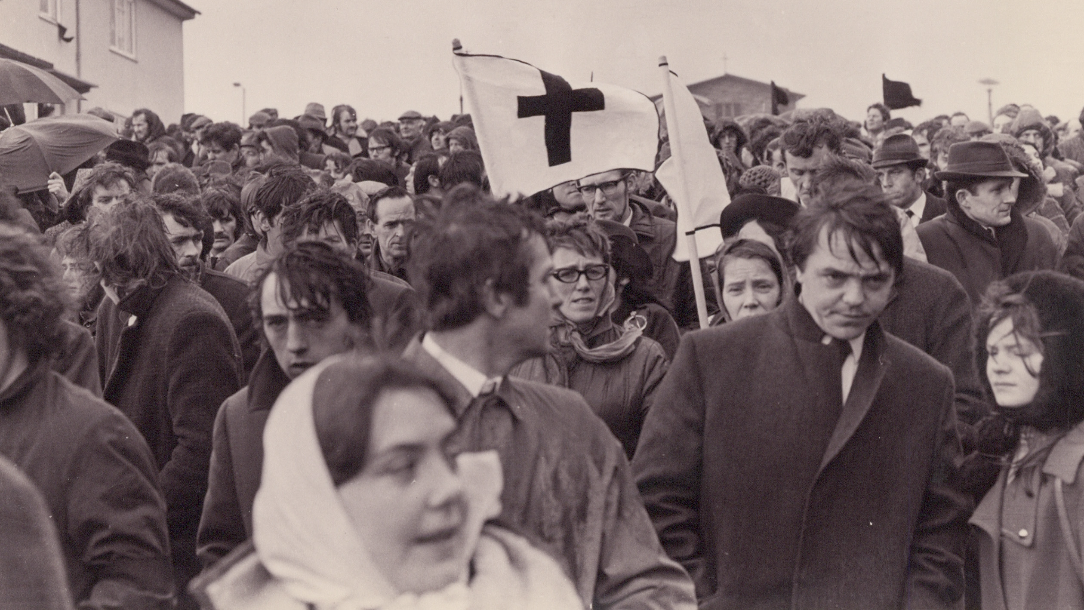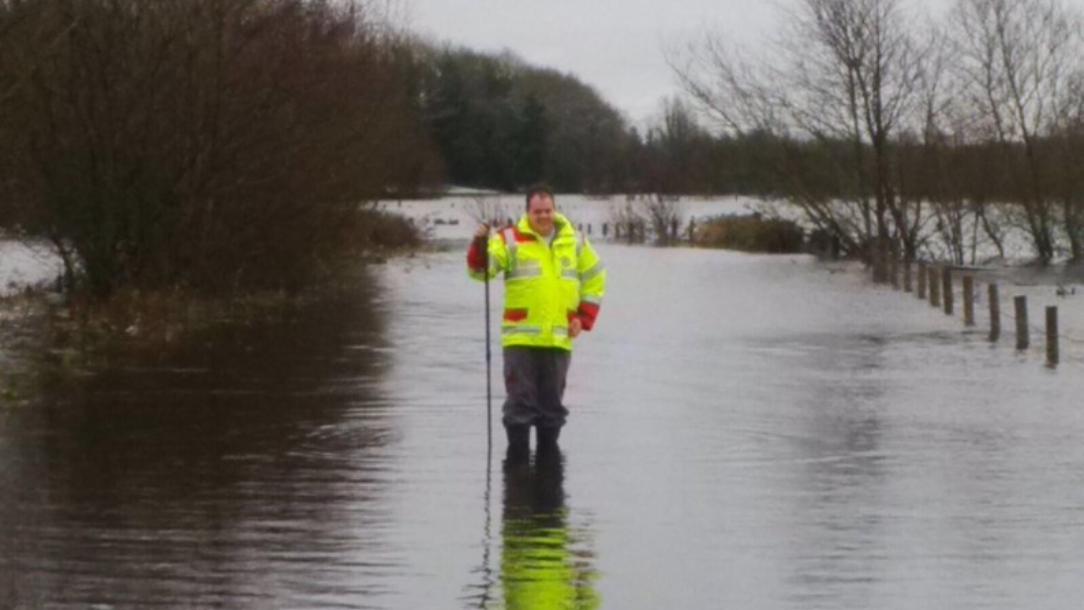Our Stories — Our Times: Public Duties
Last updated: 3 October 2024
Red Cross volunteers and ambulances provided vital first aid care and training throughout the north of Ireland. Even as conflict raged around them, they remembered days at the football, fairs, and motor races with fondness.

Presentation of Colours by Mary, Princess Royal, Conway Square Newtownards, 1952.
The conclusion of the Second World War marked a return to normality for the British Red Cross nationally and locally, but it also predicated a drop in volunteer numbers.
Although, the post-war world would lead to new developments in the public services offered by the Red Cross in Northern Ireland.
This period of activity included new ambulance and transport services, support for the disabled and carers, meals on wheels, and the return of event first aid. It also included the first recorded example of foreign refugee support in the region.

Lady Aileen McCorkell sits in the driving seat as the first Meals on Wheels service gets ready to deliver in Derry.

Meals on Wheels, Derry in the 1980s
Maureen Darby OBE
The family of Maureen Darby OBE offered memories of her dedicated voluntary leadership in the post-war period.
Although regarded for her later work during the height of the Troubles in Belfast, she has a long association with the Red Cross Movement which began during the 1940s.
In 1957, she led efforts to support the arrival of Hungarian refugees from the 1956 Rising.
The project uncovered narratives, documents, and recollections of Maureen and leadership as well as those of other contemporaries such as Jack Thompson of Belfast and Eileen Gilbert of Bangor.

Document held by William Darby, an account of the life and work of his mother, Maureen

Maureen Darby was a leading figure in the Belfast Branch of the Red Cross during the Troubles. She received an OBE for her voluntary efforts.
I remember it was a very cold, raw, wet morning with sleet and rain all day. Maureen Darby of the Belfast Branch and her helpers were waiting, in the dark, to meet the boat as it docked and to assist people, before they went on their journey.
First aid training and event first aid were cornerstones of volunteer work. Both were duties remembered fondly by participants in the project. particularly around the north coast and the Ards Peninsula motorsports.
In Counties Tyrone and Londonderry, some smaller detachments of the Western Branch supplied first aid resources to local GAA matches. Although, at times, the nature of the conflict intervened.
Holidays for the disabled and carers were trialled in partnership with other support services. Eventually, Red Cross branches in Northern Ireland were assisting groups to travel to Blackpool and Mosney.

Mairi house, Bangor, County Down

Pontins badge
We took part in Pontins holiday camps for the disadvantaged. After we came home, we always had a barbecue at Lady Mairi Bury's house. We had a raised garden with water feature for the visually impaired. Some of the workmen volunteered time and made a patio with a large red cross on it.Isobell Wilsdon OBE
In 1979, the widespread “winter of discontent” in the United Kingdom impacted Northern Ireland and the Red Cross. A strike by the region’s ambulance drivers led the Red Cross to offer emergency ambulance crews during the industrial action.
One participant recalled the ‘apprehension’ before the first night and the ‘hectic’ times that followed, worsened by the loss of an ambulance to a traffic accident and the underlying impact of the Troubles.
'Things got a lot better’, however, before the three-week long strike came to an end. During the period Ulsterbus gifted the Red Cross a bus that was transformed into a mobile medical aid unit for large events and emergencies.

Reena Keys with Eritrean refugees in Derry, around. 1985
The Our Stories – Our Times project was made possible by a grant from the National Lottery Heritage Fund.
Transcriptions and recordings of the interviews will be deposited with the Public Records Office of Northern Ireland.


Our Stories — Our Times: Youth Cadets
Explore how Youth Cadet branches worked closely with counterparts in the Irish Red Cross to foster mutual understanding of humanity and university across our movement.

Our Stories — Our Times: The Troubles
The Red Cross in Northern Ireland maintained a key, neutral and independent role throughout the conflict in Ulster.

Our Stories — Our Times: After Good Friday
Discover how the Red Cross in Northern Ireland has evolved over time while continuing to play a vital role in upholding it's core principles in a post-conflict society

